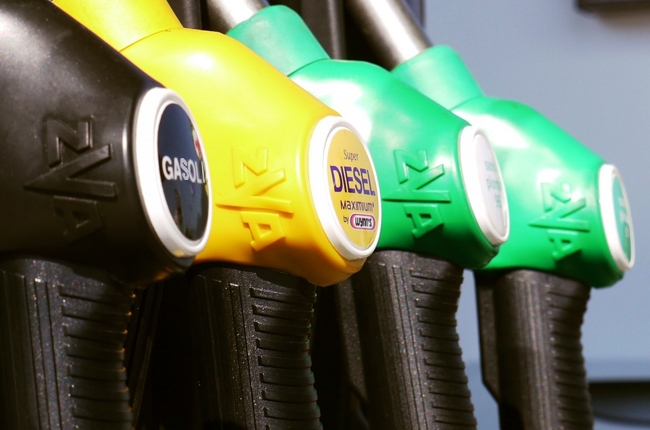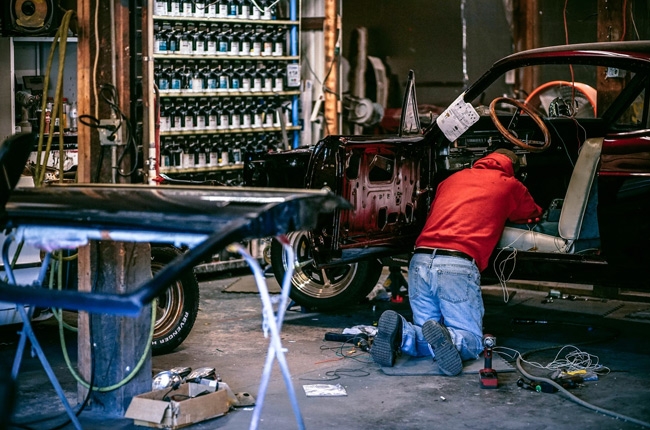
If you’re in the market to find a new ride, then one of the first questions you’ll ask is whether to spend on your dream car or get something more practical. Then, you’ll ask the (classic) question of going for either a brand new or used car.
It’s quite easy to understand that because buying a big ticket item like a car - like in any financial investment - involves huge amount of money, and you’ll definitely want to get the most out of it.
To help you narrow down your choices, and ultimately help you in making a sound decision, we’ve come up with a few pointers that can guide your car buying journey.

How much you can afford
Or, in other words, what’s your budget? Because, first things first, common sense dictates that you need to have the financial capability to pay whatever it is that you plan to buy.
So aside from having a stable job, you have to make sure that your income can cover more than the monthly amortization throughout the loan term. In this manner, you still have enough funds to shoulder your daily expenses, bills, car maintenance, and even emergency situations.
Financial experts even suggest that before spending in something big, you must have emergency funds that could last up to three months.
So if you want to buy a Ferrari but have an entry level wage, it might be best to check out the AutoDeal Used Cars section for a more affordable vehicle instead.

Family
It’s no secret that family is very important to Filipinos. As such, most car buyers will consider their families one way or the other when choosing a vehicle. The number of family members will often dictate what car they need whether it’s a five-seater sedan, seven-seater MPV/SUV, or a fifteen-seater van.
In addition, having more mouths to feed usually means less money to splurge on a brand new vehicle. AutoDeal’s Used Cars section offer a wide array of relatively affordable automobile for you to choose from.
For those who are single and completely independent of their parents, on the other hand, is well, another story. Factors vary from being able to haul the barkada in an SUV/pickup, a more practical approach with a small hatchback, to owning a compact sedan.

Where you live vs where you work
With fuel prices soaring, the geographical location of your home and work place play a huge part in choosing your next vehicle. You wouldn’t want to drive a supercar if you live in Laguna and work in Makati City. In this case, you’ll probably be better off with something more fuel-efficient like the SsangYong Tivoli XLV or Hyundai Accent Hatchback.
And, there’s also the issue of flooding. If your daily route to work is flood-prone, then a good choice to splurge on is an SUV or pickup like the Chevrolet Trailblazer or Nissan Navara.

Gas or Diesel
A lot of Filipinos prefer diesel-powered engine over gas when it comes to choosing a car mainly because of these two reasons: fuel cost and torque. Although diesel fuel is much cheaper than gas, it produces high-levels of pollution which is bad for the environment and personal health (even with the new Euro 4 standard). However, this doesn’t mean that gasoline isn’t dirty at all as it, too, pollutes the air somehow.
A good alternative would be splurging on a plug-in hybrid vehicle such as the Toyota Prius or wait for the electric vehicles (EVs) like the Nissan LEAF to come in the Philippines (whenever that may be). Not only do these cars save on fuel, it also helps save the Earth from air pollution.

Spare parts and maintenance
Before you buy that dream car of yours, you might want to consider the costs of spare parts and maintenance. Preventive Maintenance Service (PMS), which takes place every three to six months, can cost around the high thousands depending on the manufacturer. Parts and maintenance services from premium brands can go up to six digits. This can strain your monthly budget especially if there are items that are needed to be replaced or repaired.
Needless to say, it’s important to thoroughly assess your long term financial capability and how you spend your money before scrolling through the AutoDeal Car Guide or Used Car section. This can help you determine which vehicles to consider buying, and lessen the chances of bank repossession.
Latest Features
-
Which Ford should I buy? / Tips & Advice
What Ford will be yours?
-
Top 8 overland-capable vehicles available in the Philippines / Featured Article
These overland-capable vehicles sold in the Philippines are our pick to jump-start your adventure.
-
Top 5 reasons why the Toyota Corolla Cross should be your next car / Featured Article
What makes the Toyota Corolla Cross a smart choice for new car buyers? Here's a look.
Popular Articles
-
Cheapest cars under P700,000 in the Philippines
Aug 25, 2023
-
First car or next car, the Ford EcoSport is a tough package to beat
Jun 18, 2021
-
Car Maintenance checklist and guide – here’s everything you need to know
Earl Lee · Jan 12, 2021
-
Most fuel efficient family cars in the Philippines
Bryan Aaron Rivera · Nov 27, 2020
-
2021 Geely Okavango — Everything you need to know
Joey Deriquito · Nov 19, 2020
-
Family cars in the Philippines with the biggest trunks
Sep 20, 2023
-
Head to head: Toyota Rush vs. Suzuki XL7
Joey Deriquito · Oct 28, 2020
-
Why oil changes are important for your car
Earl Lee · Nov 10, 2020
-
2021 Kia Stonic — What you need to know about it
Joey Deriquito · Oct 16, 2020
-
Top 7 tips for buying a used car in the Philippines
Joey Deriquito · Nov 26, 2020



